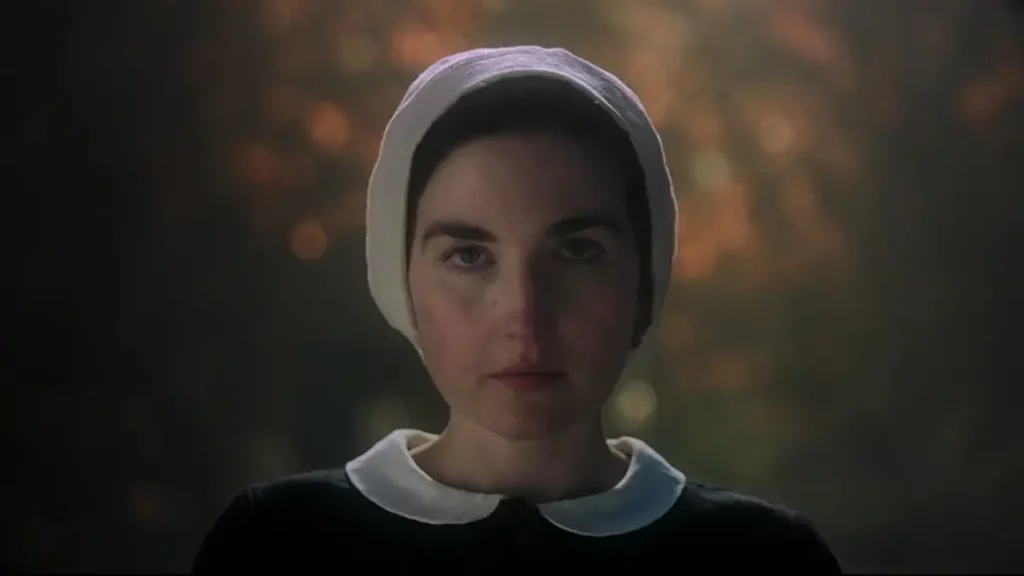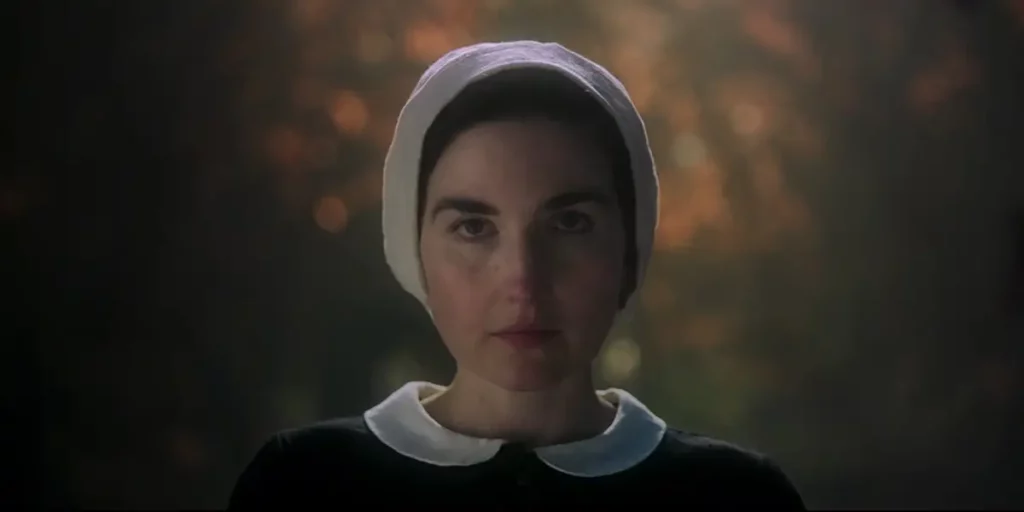Through her new film Witches, Elizabeth Sankey argues women who suffer from postpartum mental illnesses are treated akin to witches in pop culture.
Director: Elizabeth Sankey
Genre: Documentary, Biographical
Run Time: 90′
Tribeca World Premiere: June 9-15, 2024
Witches (2024) Release date: TBA
Postpartum mental health illnesses are not well understood by the masses. There is an unspoken understanding that when women give birth, they are meant to love their children more than anything else in the world. Childbirth is seen to be this magical thing that gives women an unlimited well of love to tap into for their children and a sense of completeness they have never felt before.
However, this false narrative that is perpetuated within society has gravely damaged the lives of women who don’t have this immediate sense that their lives have settled into themselves the moment they give birth. Elizabeth Sankey certainly did not feel this way and with her new documentary, Witches, she hopes to show other women it’s okay if they don’t either.
Elizabeth Sankey’s career as a storyteller is closely intertwined with her passion for pop culture. When searching for a new project, she had always been fascinated by witches and their portrayal within the cultural zeitgeist. She searched for a way to create a piece on witches through a feminist lens, wanting to decipher what differentiated a good witch from a bad witch and why anyone would want to be bad.
Then in 2020, several days after giving birth to her son, Sankey was admitted to a psychiatric ward seeking treatment for postpartum-related mental health illnesses. Sankey says she had no way of verbalizing the thoughts she was having as she thought they were so unnatural to what a new mother “should” feel. She desperately sought out answers from anyone who had a similar experience. In this search, she found “Motherly Love”, a group of mothers who all had experience with various postpartum mental health illnesses. These women and this group saved her life and served as the catalyst for her next project, which became Witches.
Witches is a deeply personal analysis of postpartum mental health illnesses in connection to the real-life history and onscreen portrayal of witches throughout pop culture. Women were once healers in their communities, but were shoved out by men and then damned to the label of a “witch” if they tried to question the men of their community’s authority. This led to an increase in depression, suicidal ideation and intense feelings of pressure which were also seen at the time as the main characteristics of a witch in place of the knowledge these were mentally unwell people. So many women suffered because they did not have anyone to believe their troubles or understand them.

Witches takes an educational approach to telling a deeply personal story, which are two motivations that often conflict rather than serve each other. The connection between the portrayal and history of witches and postpartum mental health illnesses is there in some capacity, but it takes a while for the film to connect the dots, rendering us with a story that feels lopsided.
Once the two concepts are finally connected, the movie provides interesting insight into just how long women have lacked the proper language to speak on postpartum mental health illnesses and how damaging the effects of their forced silence have been. Women would outright confess to witchcraft, preferring to burn at the stake, because they could no longer take the torture of suffering that came with the mental health issues that followed childbirth.
Still, the leaps you need to take back and forth between the two storylines are vast. They are also not very strongly connected, many times leaving the viewer to fill in the blanks and create their own connections rather than using proven facts or situational antidotes to bridge these two concepts.
The introduction to the concept of a covenant sticks out as a major example of this. The connection between “Motherly Love” and the relevance of covenants in the history of witchcraft is more of a logical leap you have to make for yourself rather than a hard fact. It is a beautiful concept, women banding together to support each other in a society that could never understand their pain. But once again, the documentary is shifting its focus back and forth between historical fact and conceptual connection in a way that doesn’t track in terms of the tone of the film.
There needed to be a decision on which direction the film wanted to lean further into that seems like it was never definitively made. The documentary has several long monologues about the treatment of women as seen through the treatment of witches which feel like they are meant for another film. It’s not that these moments are not impactful or well done; they just don’t particularly make sense in the context of their inclusion.
Witches is an experimental approach to both an educational and personal form of storytelling, but Sankey spreads herself too thin to make both tones fit within the same film. The goal of putting all these concepts within one film is to say the way we portray complex women oftentimes is by slapping the label of evil on them which is the case with many witches. Rather than seek to explore the motivations of these complicated female characters, we banish them to the realm of the unredeemable, when really they need love and compassion more than anyone else. However, these conclusions are hard to reach, only available if you are able to sift through all the information Sankey has compiled and piece the connections together one by one yourself.
Witches premiered at the Tribeca Film Festival on June 9-15, 2024. Read our list of 15 films to watch at the 2024 Tribeca Film Festival!

